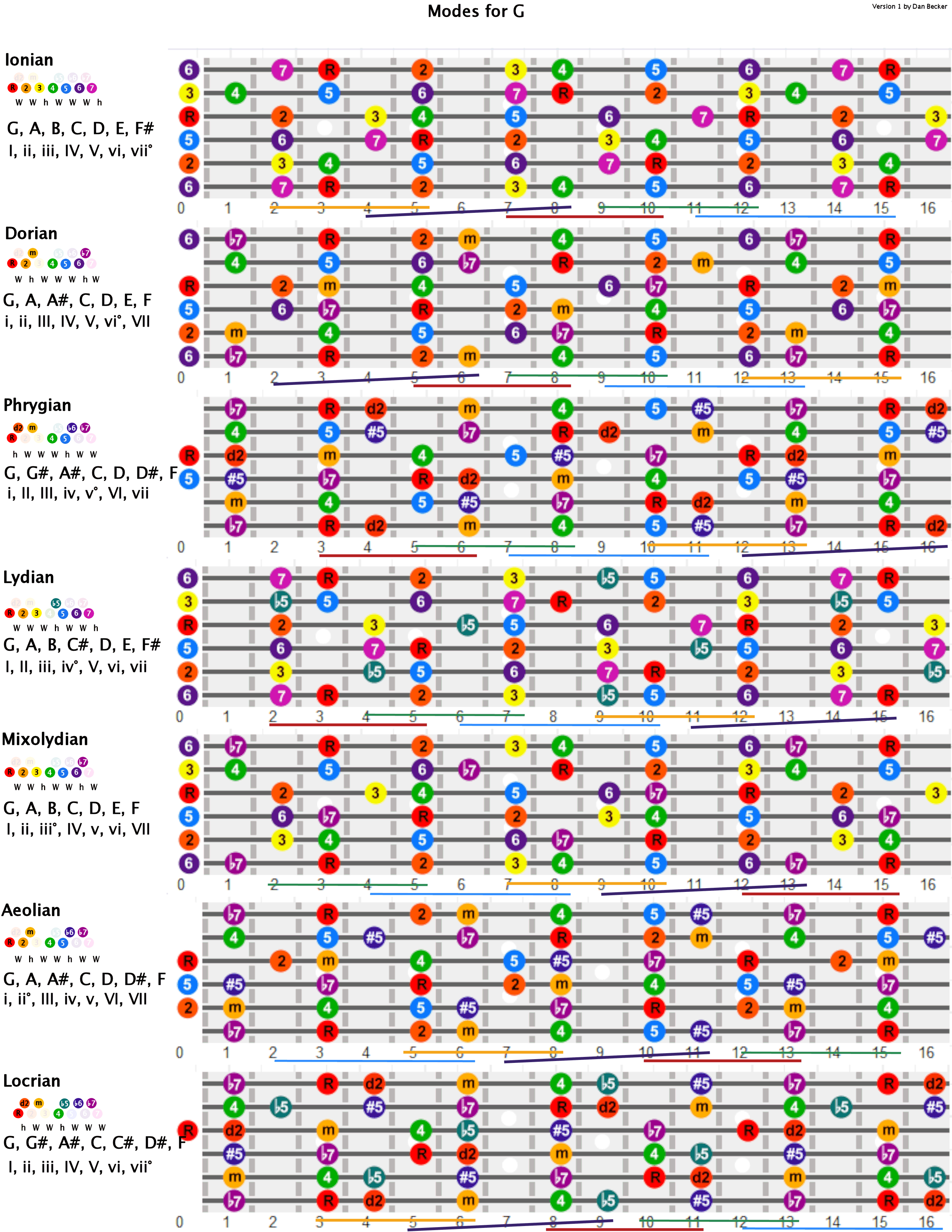 |
| Image courtesy of danbecker.info |
Scales Everyone Needs
There are 7 basic guitar scales that I encourage all my students to practice and utilize regardless of their goals. These 7 scales not only help strengthen hands and fingers but will also help students become familiar with their fret boards. More importantly however, these scales are all encompassing and will give learners a well balanced tool set. Of course students with lofty goals and those who want to play certain style's will learn more complex scales down the line but everyone starts with these seven.
- Chromatic Scale - The chromatic scale is sometimes referred to as "the spider" because it simply requires a guitar player to follow a 1, 2, 3, 4 finger pattern both in ascent and descent. This scale is primarily used as a warm up exercise prior to playing or a lesson. It teaches accuracy and develops coordination.
- Minor Pentatonic Scale - This scale is one of the most commonly used across music. It's simple yet can be used to great effect in many different genre's of music, especially rock and metal. This is typically the first scale students play competently and begin phrasing with. This scale is played over minor chord progressions and can be played in slightly "off" positions to give a piece of music a slightly outside type of feel.
- The Blues Scale - As the name implies the blues scale is heavily associated with blues music. Like the minor penatonic scale though this scale is also used heavily in rock music and is only slightly varied from the former. I generally teach two variations of this scale; those being the root on the sixth and fifth strings.
- Natural Minor Scale - Along side the minor penatonic, the natural minor scale is the most oft used scale in rock music. It's use can also be heard throughout nearly every other genre however. This scale teaches students how to change frets during a scale and gives pinkies a good work out. This scale is sometimes known as "Aeolian Mode".
- The Major Scale - In order to teach students the difference between minor and major tones I often refer to the major guitar scale as "the happy scale". The scale is friendly to beginners but has a great many uses throughout every conceivable genre of music. Whether a student wants to write pop music or become a jazz musician, this scale will be of great use to them. Moreover the 5th string root version of this scale is a real workout for new students.
- Dorian Mode - I teach my new students Dorian Mode mostly because it provides their hands, wrists, and fingers with one hell of a work out. Dorian Mode is part of the minor scale family and can be used in many different types of music, especially jazz, funk, and fusion.
- Mixolydian Mode - Part of the major family of guitar scales, Mixolydian Mode is taught in order to push students coordination development and accuracy. Most beginners find Mixolydian Mode to be the most challenging of the basic set. When the scale is rooted on the 5th string it's also played exactly like Dorian Mode on rooted in the 6th string.
I encourage my students to begin each practice session with a 15 minute run of the Chromatic scale as a warm up. From here I recommend each student play the aforementioned scales in 10 minute sets and to play as long as duties and stamina allow them too. Over doing it, especially in the beginning, leads to burnout and overly sore hands and fingers.
If you have any questions about guitar scales or are interested in learning how to play guitar feel free to contact me! I teach people of all ages how to play guitar without inundating them with useless information and techniques.
No comments:
Post a Comment